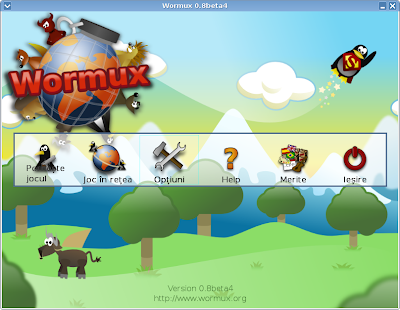Frans Pop: The case of the self-perpetuating DNS errors
Ingredients:
- some lame DNS server
- logcheck
- spamassassin
named: connection refused resolving 'somedomain.org/NS/IN': xxx.yyy.zzz.nnn#53
named: connection refused resolving 'somedomain.org/NS/IN': xxx.yyy.zzz.mmm#53
named: connection refused resolving 'ns1.somedomain.org/AAAA/IN': xxx.yyy.zzz.mmm#53
named: connection refused resolving 'ns2.somedomain.org/AAAA/IN': xxx.yyy.zzz.mmm#53
named: connection refused resolving 'ns1.somedomain.org/AAAA/IN': xxx.yyy.zzz.nnn#53
named: connection refused resolving 'ns2.somedomain.org/AAAA/IN': xxx.yyy.zzz.nnn#53
- logcheck reports the failure during its next check
- spamassassin processes the logcheck mail, spots the domain name and does a new set of lookups, which fail and get logged
- logcheck reports the failures during its next check
- ...
logging
category lame-servers null; ;
;
 Well, no, neither FOSDEM nor Debian are dead. But FOSDEM '09
is gone, over, and dealt with.
It was a breeze, for the most part. I'm still not very happy
with the booth; that needs to be done better next year. Help and
suggestions in that area are more than welcome.
One thing that more than deserves a follow-up is
Well, no, neither FOSDEM nor Debian are dead. But FOSDEM '09
is gone, over, and dealt with.
It was a breeze, for the most part. I'm still not very happy
with the booth; that needs to be done better next year. Help and
suggestions in that area are more than welcome.
One thing that more than deserves a follow-up is  Of course, I was in Brussels this week-end, for FOSDEM. I gave a talk about
Of course, I was in Brussels this week-end, for FOSDEM. I gave a talk about  After my
After my  When the Debian installer starts, it will normally ask you what language
you want to install in and gives you a really long list of languages to
choose from. Unfortunately, that's not how it works when you install on a
headless NAS device. The reason for this is that installations on NAS
devices are done via SSH and the installer normally brings the network up
after asking the user for their language. So we'd simply skip the language
question and go with English.
When Timo Jyrinki recently mentioned that he couldn't install in Finnish,
Frans Pop pointed out that localechooser has changed a lot since etch and
that it should now be possible to have the language question after setting
up the network. This turned out to be correct and I managed to choose a
different language but the installer still showed everything in English.
Frans reminded me that the installer drops all translations that are not
necessary but unfortunately this happens too early in our case. He pointed
me to a variable that determines whether translations will be dropped. So
in lenny translations will not be dropped on NAS devices that have enough
RAM and users will be asked when they connect to the installer via SSH what
language they'd like to install in.
When the Debian installer starts, it will normally ask you what language
you want to install in and gives you a really long list of languages to
choose from. Unfortunately, that's not how it works when you install on a
headless NAS device. The reason for this is that installations on NAS
devices are done via SSH and the installer normally brings the network up
after asking the user for their language. So we'd simply skip the language
question and go with English.
When Timo Jyrinki recently mentioned that he couldn't install in Finnish,
Frans Pop pointed out that localechooser has changed a lot since etch and
that it should now be possible to have the language question after setting
up the network. This turned out to be correct and I managed to choose a
different language but the installer still showed everything in English.
Frans reminded me that the installer drops all translations that are not
necessary but unfortunately this happens too early in our case. He pointed
me to a variable that determines whether translations will be dropped. So
in lenny translations will not be dropped on NAS devices that have enough
RAM and users will be asked when they connect to the installer via SSH what
language they'd like to install in.
 After a short discussion time, my proposals have been ACK'ed and we will have 63 languages supported, including English, in Debian Installer for Lenny. Etch had 58 supported languages.
The final winners are (alphabetical order of ISO code):
Amharic, Arabic, Belarusian, Bulgarian, Bengali, Bosnian, Catalan,
Czech, Welsh, Danish, German, Dzongkha, Greek, English, Esperanto,
Spanish, Basque, Finnish, French, Irish, Galician, Gujarati, Hebrew,
Hindi, Croatian, Hungarian, Indonesian, Italian, Japanese, Georgian,
Khmer, Korean, Kurdish, Lithuanian, Latvian, Macedonian, Malayalam,
Marathi, Norwegian Bokm l, Nepali, Dutch, Norwegian Nynorsk, Punjabi,
Polish, Portuguese, Brazilian Portuguese, Romanian, Russian, Northern
Sami, Slovak, Slovenian, Albabian, Serbian, Swedish, Tamil, Thai,
Tagalog, Turkish, Ukrainian, Vietnamese, Wolof, Simplified Chinese,
Traditional Chinese
Newcomers for Lenny are:
Amharic, Welsh (back), Irish, Marathi, Northern Sami, Serbian
We lost Estonian which was in Etch.
Those that missed the deadline are of course all other languages of the world. We will put focus on languages where an effort started at some moment but could not be complete enough:
Afrikaans, Estonian, Persian, Armenian, Icelandic, Kazakh, Kannada,
Kashmiri, Lao, Malagasy, Malay, Sanskrit, Secwepemctsin, Telugu, Urdu, Xhosa
Many thanks to all translators for this final effort. Thanks also to
all people who urgently popped up last week to complete the
translations for languages that were "orphaned". I hope this will
bring us more translators...:-)
I keep special thanks to Frans Pop here. He is, along with me, the
author of the code that allows us to split D-I translations in
"sublevels", allowing translators to focus on the most "important"
messages. He also implemented prior warnings when users pick up a
language where some less important screens aren't translated. This
also allows us to more easily keep partly complete translations, or
activate languages earlier. Without this, 11 languages should have
been dropped.
After a short discussion time, my proposals have been ACK'ed and we will have 63 languages supported, including English, in Debian Installer for Lenny. Etch had 58 supported languages.
The final winners are (alphabetical order of ISO code):
Amharic, Arabic, Belarusian, Bulgarian, Bengali, Bosnian, Catalan,
Czech, Welsh, Danish, German, Dzongkha, Greek, English, Esperanto,
Spanish, Basque, Finnish, French, Irish, Galician, Gujarati, Hebrew,
Hindi, Croatian, Hungarian, Indonesian, Italian, Japanese, Georgian,
Khmer, Korean, Kurdish, Lithuanian, Latvian, Macedonian, Malayalam,
Marathi, Norwegian Bokm l, Nepali, Dutch, Norwegian Nynorsk, Punjabi,
Polish, Portuguese, Brazilian Portuguese, Romanian, Russian, Northern
Sami, Slovak, Slovenian, Albabian, Serbian, Swedish, Tamil, Thai,
Tagalog, Turkish, Ukrainian, Vietnamese, Wolof, Simplified Chinese,
Traditional Chinese
Newcomers for Lenny are:
Amharic, Welsh (back), Irish, Marathi, Northern Sami, Serbian
We lost Estonian which was in Etch.
Those that missed the deadline are of course all other languages of the world. We will put focus on languages where an effort started at some moment but could not be complete enough:
Afrikaans, Estonian, Persian, Armenian, Icelandic, Kazakh, Kannada,
Kashmiri, Lao, Malagasy, Malay, Sanskrit, Secwepemctsin, Telugu, Urdu, Xhosa
Many thanks to all translators for this final effort. Thanks also to
all people who urgently popped up last week to complete the
translations for languages that were "orphaned". I hope this will
bring us more translators...:-)
I keep special thanks to Frans Pop here. He is, along with me, the
author of the code that allows us to split D-I translations in
"sublevels", allowing translators to focus on the most "important"
messages. He also implemented prior warnings when users pick up a
language where some less important screens aren't translated. This
also allows us to more easily keep partly complete translations, or
activate languages earlier. Without this, 11 languages should have
been dropped.
 Another point release for Etch has been done; now it's the time for the CD
team to roll out new images after the next mirror pulse. The official
announcements (prepared by Alexander Reichle-Schmehl, thanks!) will follow
shortly afterwards. FTP master of the day was Joerg Jaspert, who
did his first point release since Woody, as he told us on IRC. We
appreciate your work and you spending your time that shortly before
going to Argentina.
This point release includes the etchnhalf update introducing a new kernel
image (based on 2.6.24) and some driver updates. Additionally the
infamous openssl hole will be fixed for good, even for new installs.
Again I want to present you a list of people who contributed to this
release. It cannot be complete as I got the information out of the
Another point release for Etch has been done; now it's the time for the CD
team to roll out new images after the next mirror pulse. The official
announcements (prepared by Alexander Reichle-Schmehl, thanks!) will follow
shortly afterwards. FTP master of the day was Joerg Jaspert, who
did his first point release since Woody, as he told us on IRC. We
appreciate your work and you spending your time that shortly before
going to Argentina.
This point release includes the etchnhalf update introducing a new kernel
image (based on 2.6.24) and some driver updates. Additionally the
infamous openssl hole will be fixed for good, even for new installs.
Again I want to present you a list of people who contributed to this
release. It cannot be complete as I got the information out of the
 A while back Frans filed
A while back Frans filed 
 A few clarifications on TDebs in Emdebian:
A few clarifications on TDebs in Emdebian:
